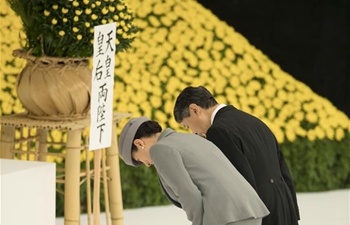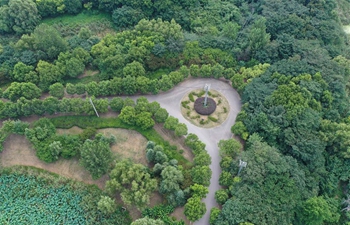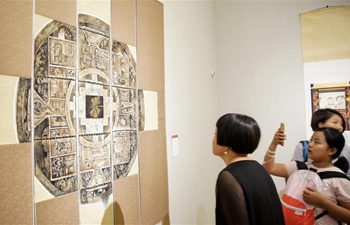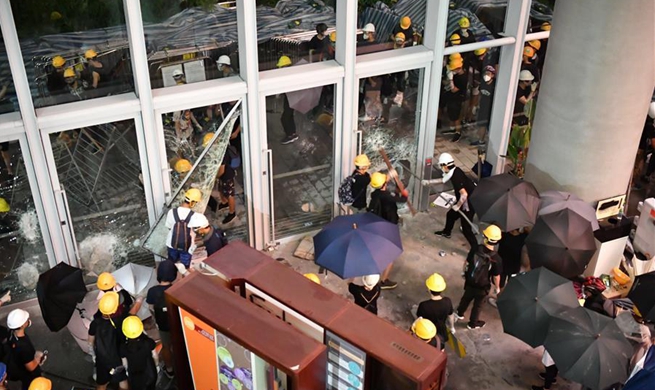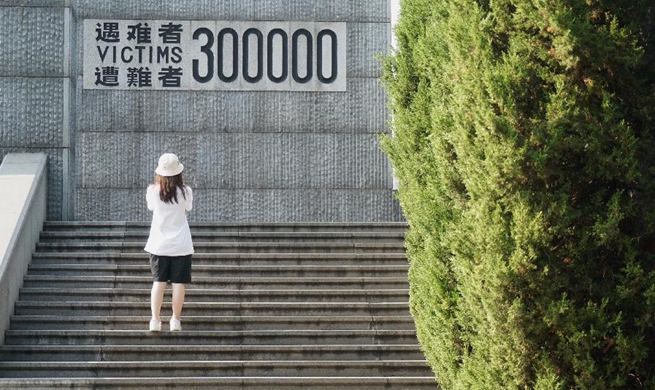GUANGZHOU, Aug. 16 (Xinhua) -- It's 5 p.m., usually the closing time for Guangdong Folk Arts Museum. But now it remains open even as night falls over the city.
It is among eleven museums in Guangzhou, capital of south China's Guangdong Province, which have extended their opening hours into the night since August.
Located in a century-old traditional ancestral hall, Guangdong Folk Arts Museum consists of 19 buildings connected by a corridor and courtyards. Covering an area of 15,000 square meters, it is the largest Lingnan-style ancestral hall in existence in the province.
"The hall looks very exquisite in the daytime but the details of the architecture are hardly visible at night," said Mou Liaochuan with the museum. "We cannot simply light up the buildings as it can damage the architecture."
Now technology has come to the aid.
A pool used to stand in the center of the front square, but vanished long ago. Mou said they planned to use digital projection technology to "reconstruct" the pond, with dynamic images of lotus flowers and fish "in the pond."
This is not the first time that Guangdong Folk Arts Museum has been digitalized. In December last year, it opened an exhibition hall combining its collection with advanced technology such as virtual reality (VR) and augmented reality (AR).
In the 80-square-meter hall, by putting on a VR headset, visitors can travel through time and be immersed in the traditional architecture and environment of the Qing Dynasty (1644-1911). They can also take a close look at the museum's antiques, which are barely displayed in public.
"We have collected the images of about 50 antiques. Visitors can enlarge or rotate the 'antiques' to appreciate their vivid details," said Mou.
The move is among a number of measures to accelerate cultural and business activities during night time in China. Many cities, especially metropolises such as Beijing, Shanghai and Guangzhou, have rolled out plans to support nighttime consumption, aiming for new economic momentum in the service sector between 6 p.m. and 6 a.m.
Food delivery and catering consumption at night have expanded rapidly in recent years and night cultural activities, especially those in museums, have witnessed a striking boom.
Museums in China registered an annual increase of 100 million visitors, according to Xiang Xi, chief executive officer of Time Network, a culture creativity company.
Opening museums at night with the help of digital technology can not only make a city more culturally appealing, but also help create a new growth engine for local tourism, said Xiang.






